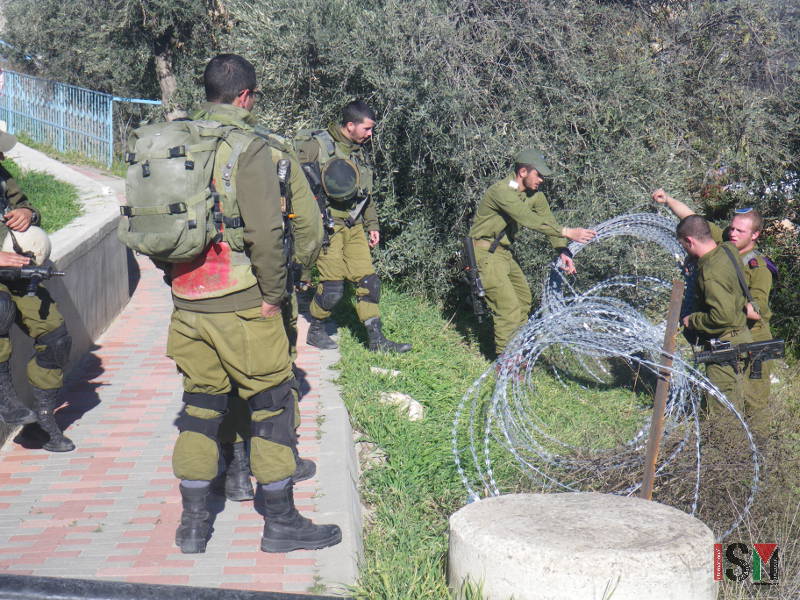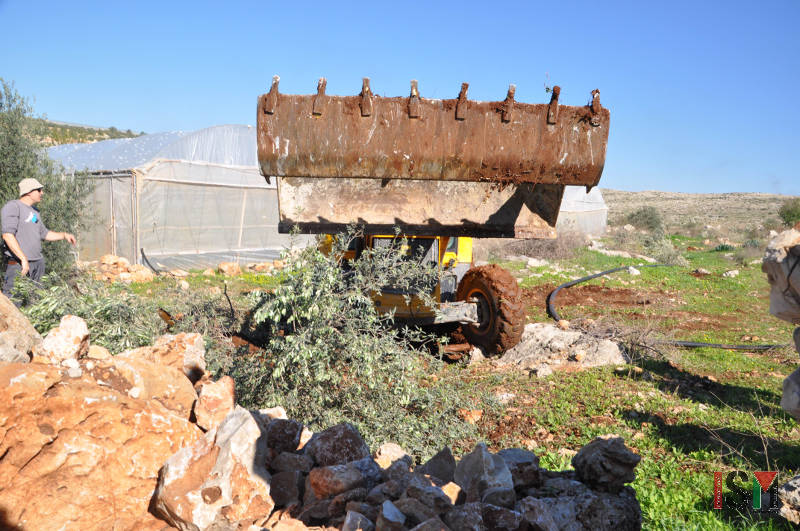Category: Video
-
School children denied their right to education in Hebron
December 10th, 2015 | International Solidarity Movement, al Khalil team | al Khalil, occupied Palestine Today, on International Human Rights Day, school children as well as teachers were denied access to the Cordoba school in Al-Khalil (Hebron). The mixed primary school is located in the neighborhood of Tel Rumeida at the end of the small strip of…
-
Israeli forces uproot trees and destroy greenhouses in Kafa district
8th of December 2015 | International Solidarity Movement, Tulkarm Team | Kafa district, occupied Palestine On Tuesday, Israeli forces entered the village of Kafa in the outskirts of occupied Tulkarm. Within a few hours, they uprooted over 150 olive trees, 30 lemon trees and demolished four greenhouses from the land of the Esmail family. Even…
-
Increasing collective punishment in occupied al-Khalil (Hebron)
3rd of December 2015 | International Solidarity Movement, al-Khalil team | Hebron, occupied Palestine Israeli forces closed the al-Hareka neighbourhood putting up new roadblocks and completely closing off a whole neighbourhood in occupied al-Khalil (Hebron). The neighbourhood’s access to the main street has been blocked off with an iron gate for a long time already. Recently,…



